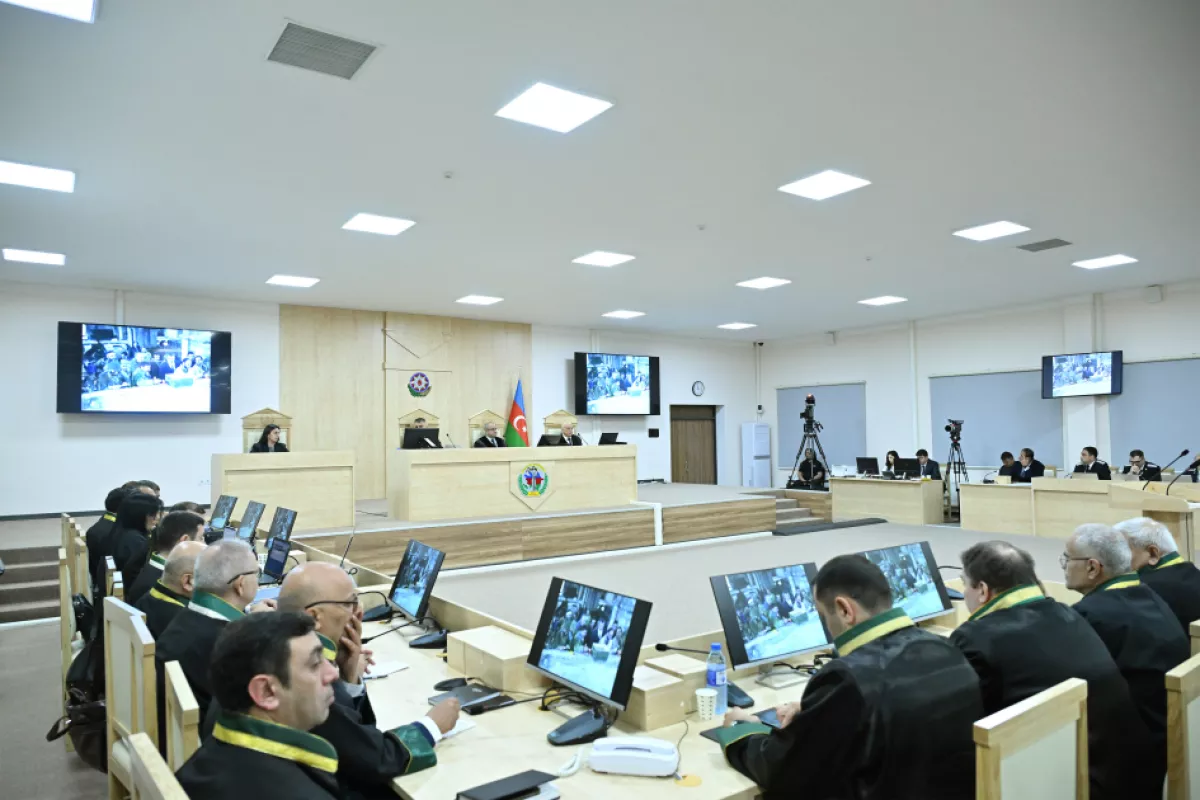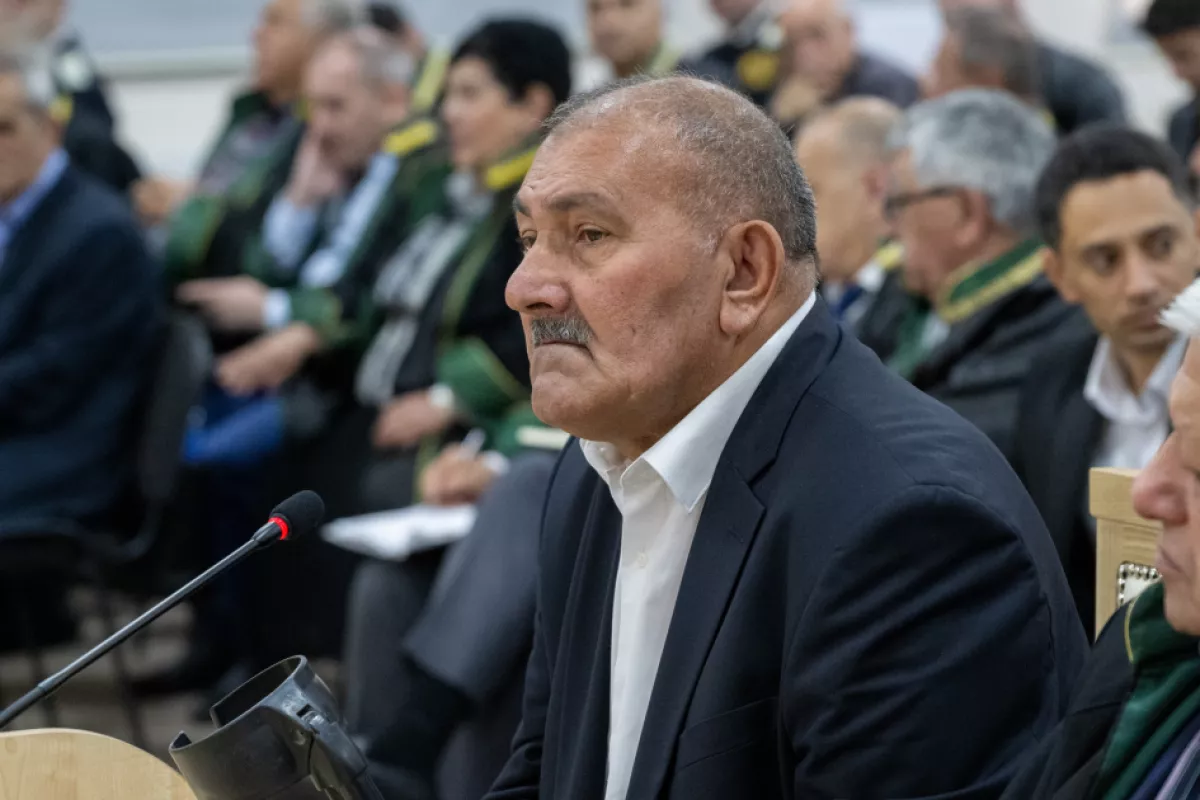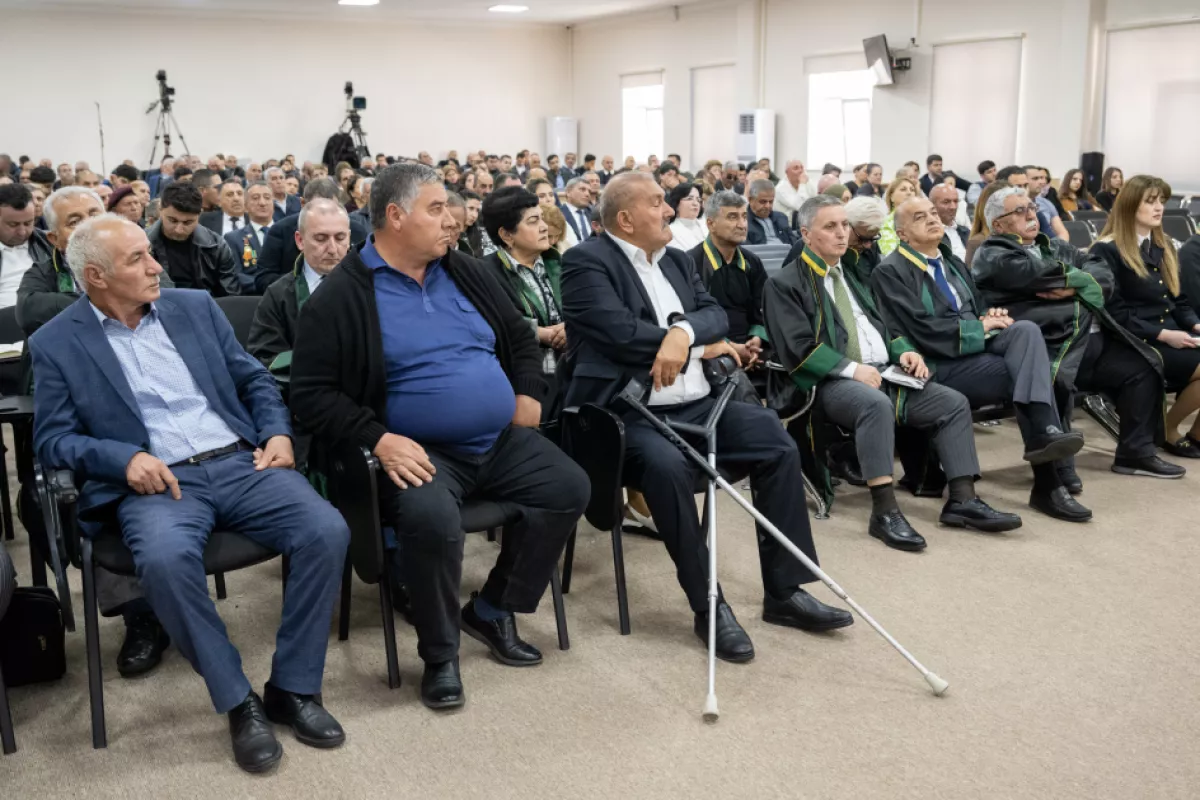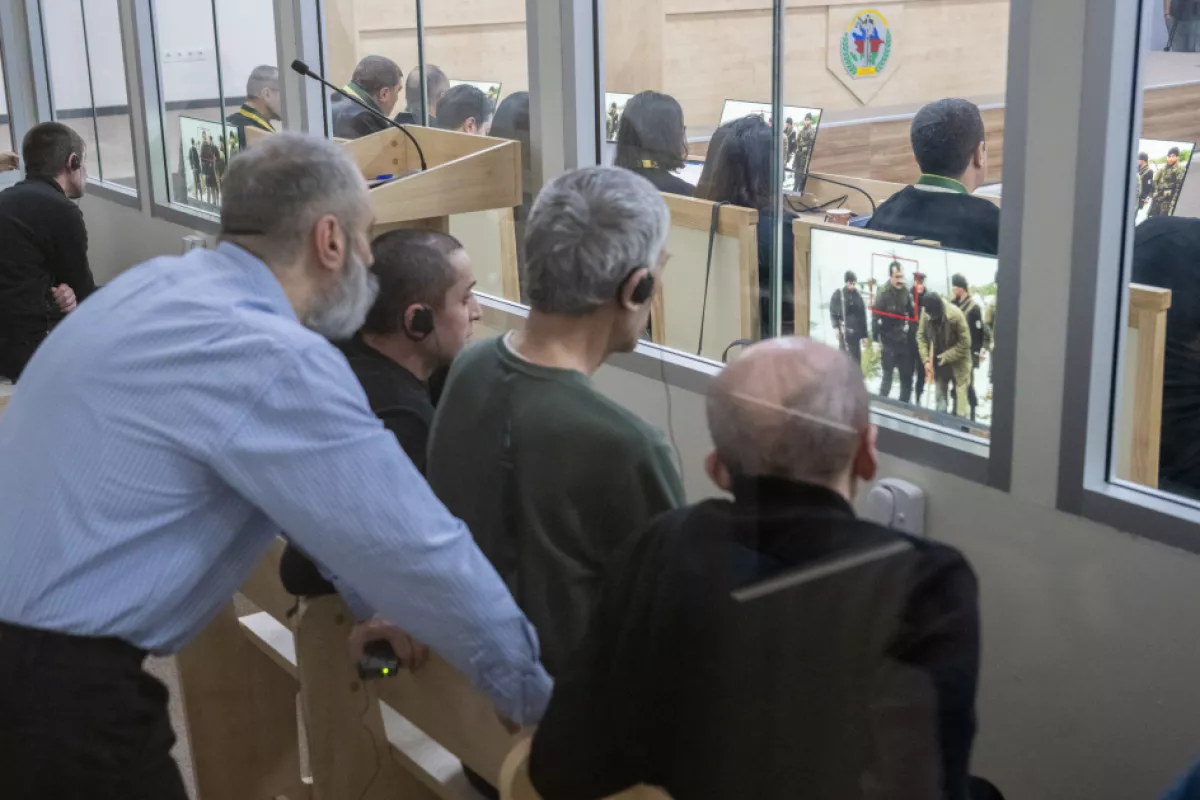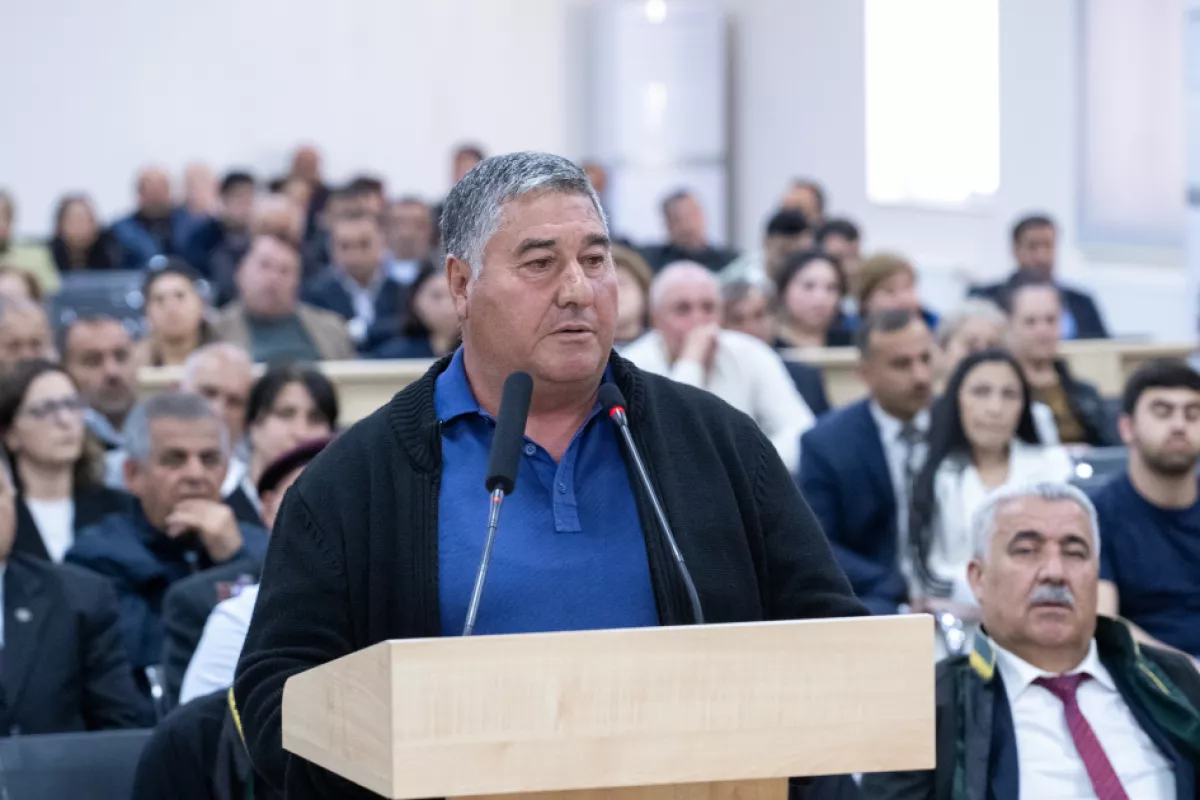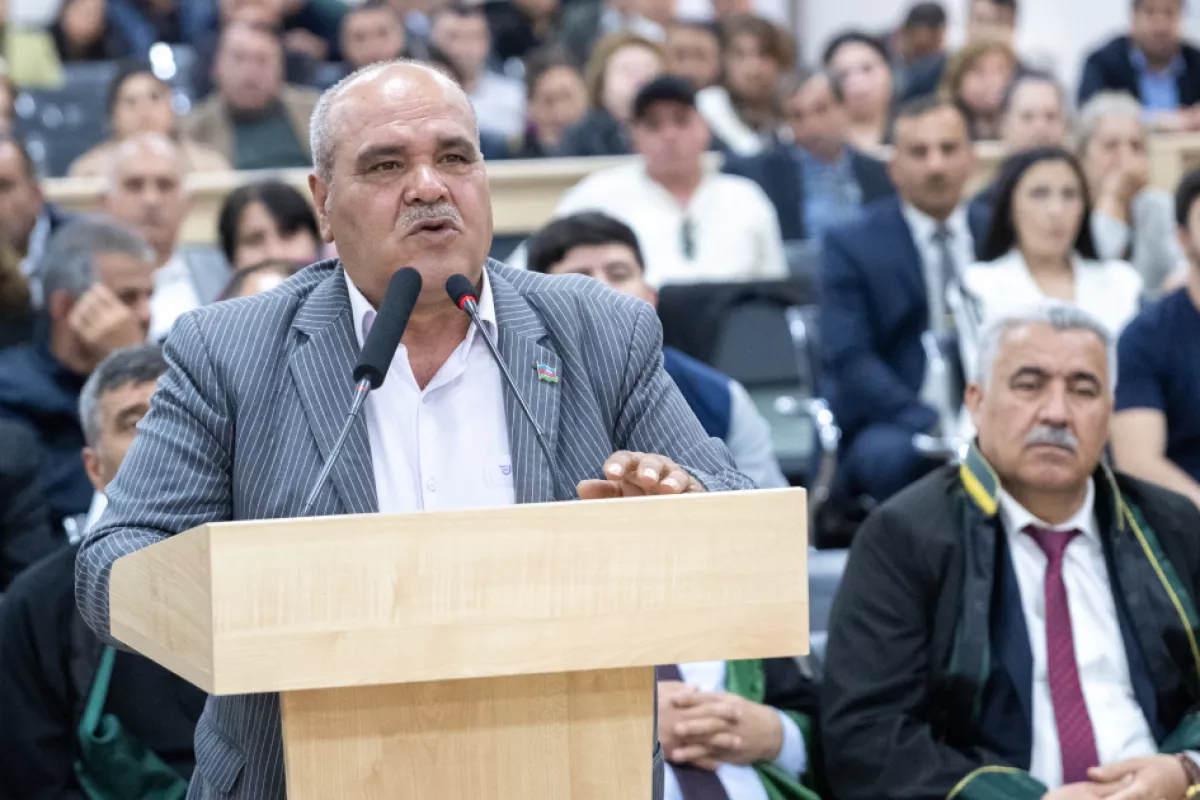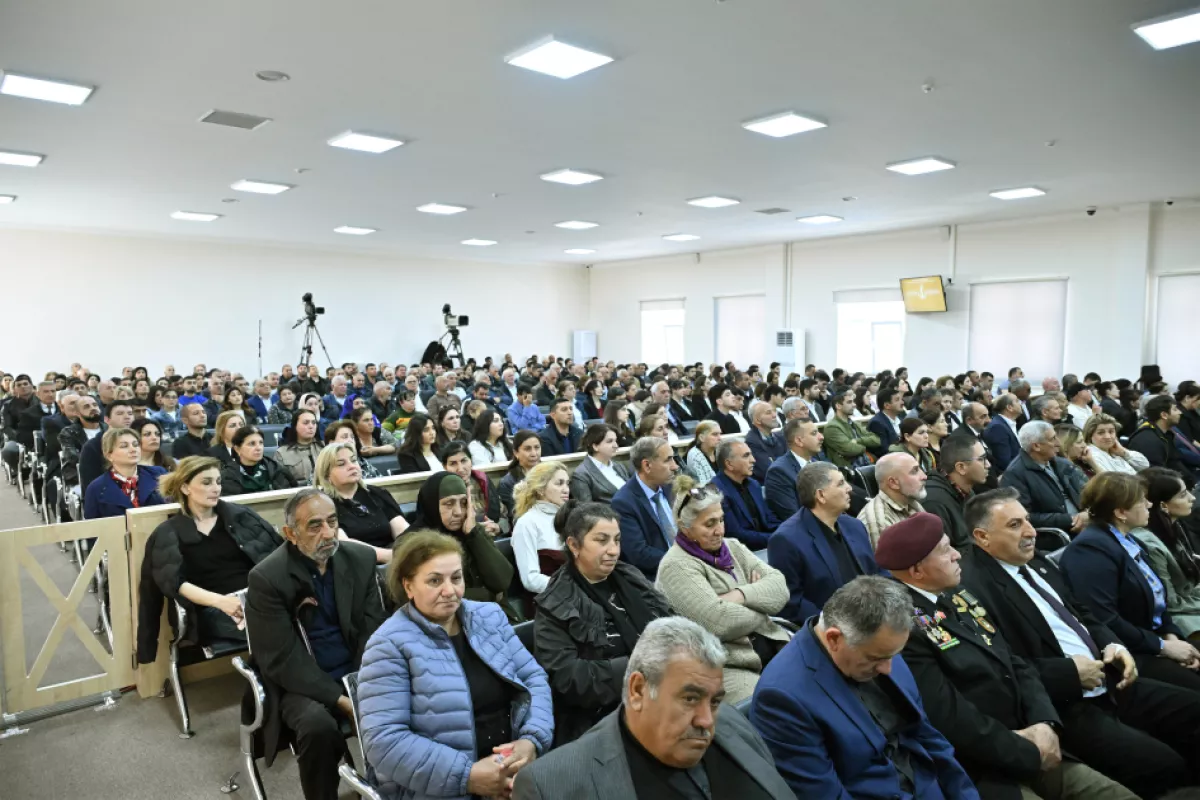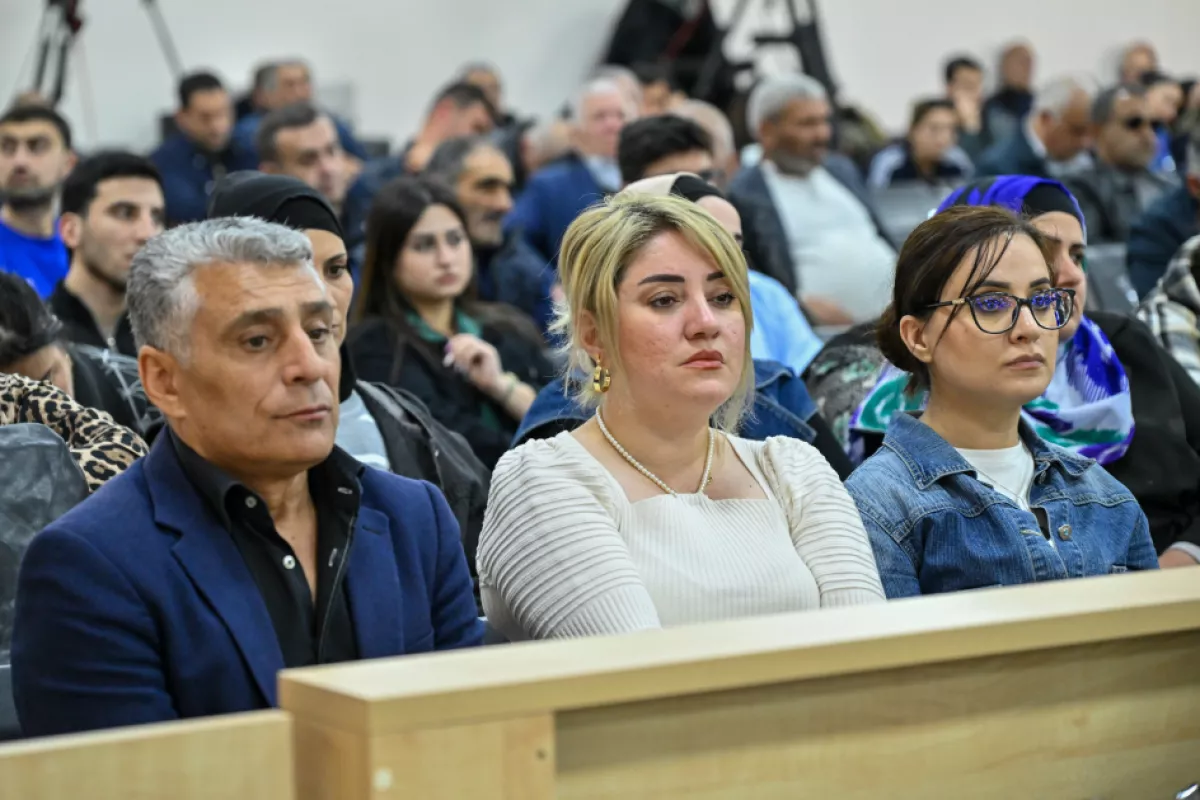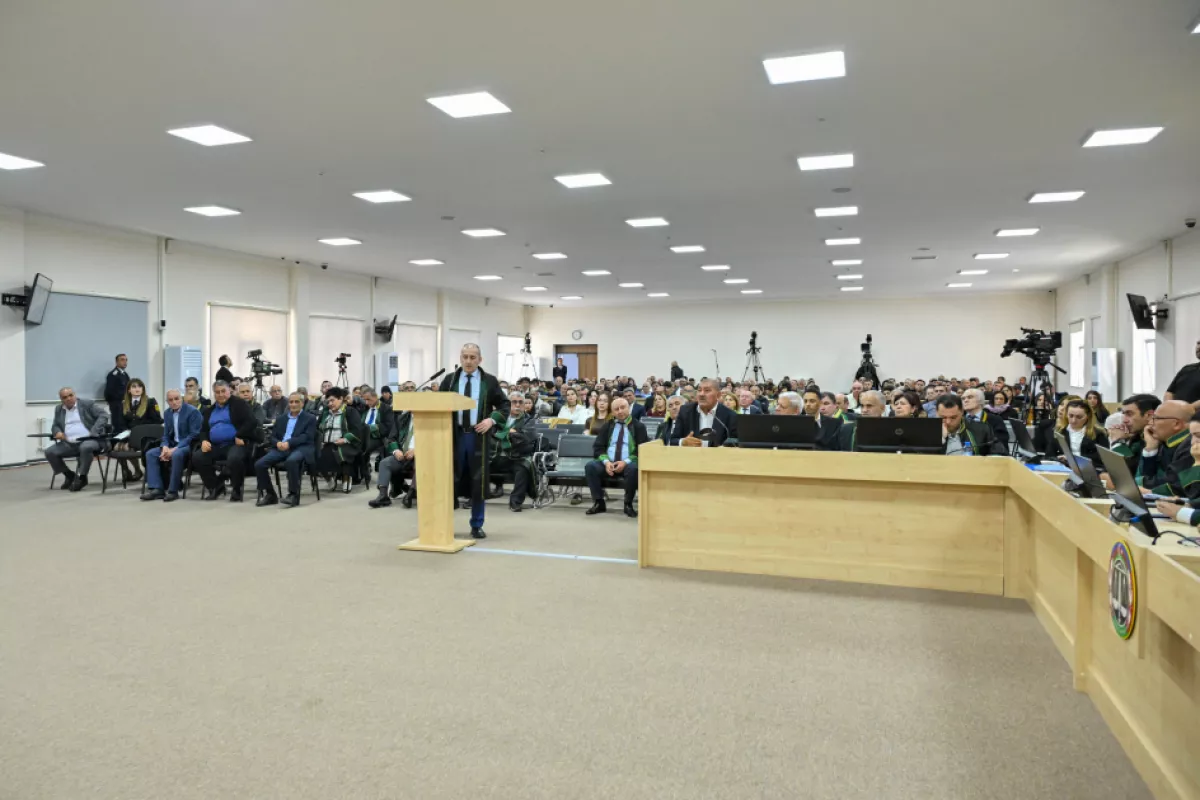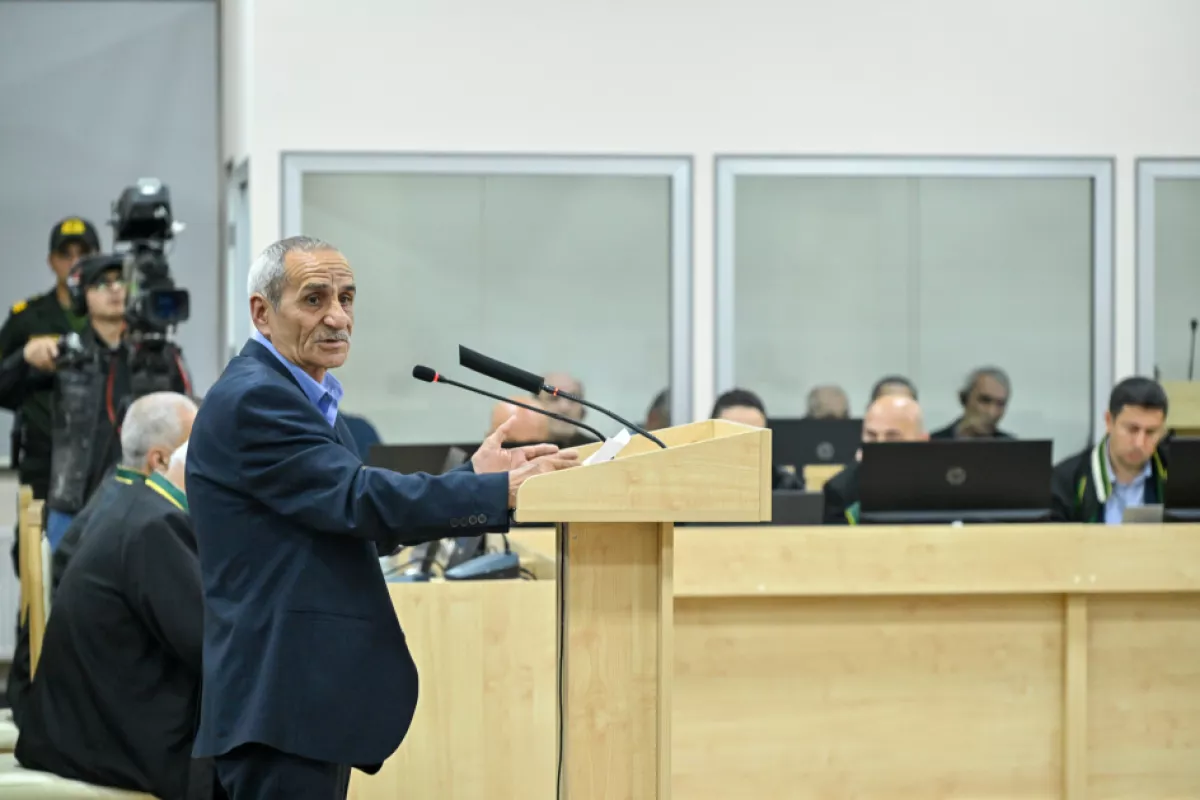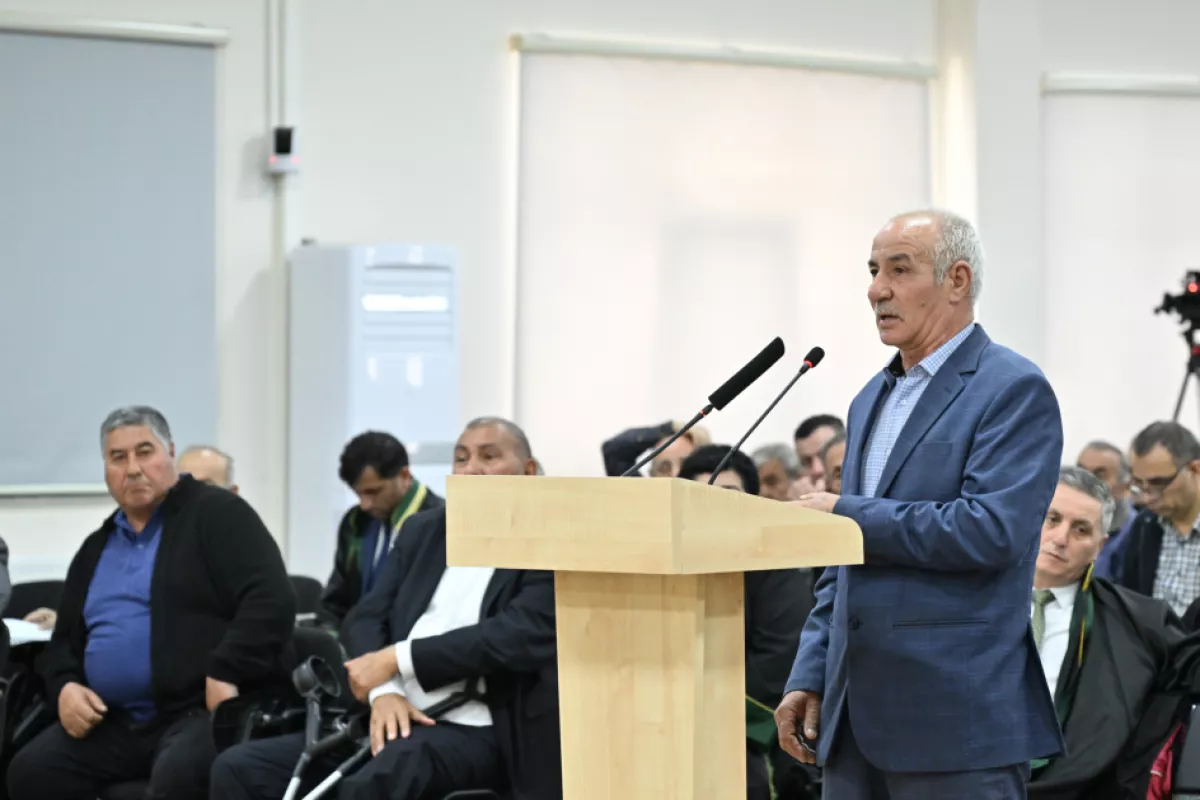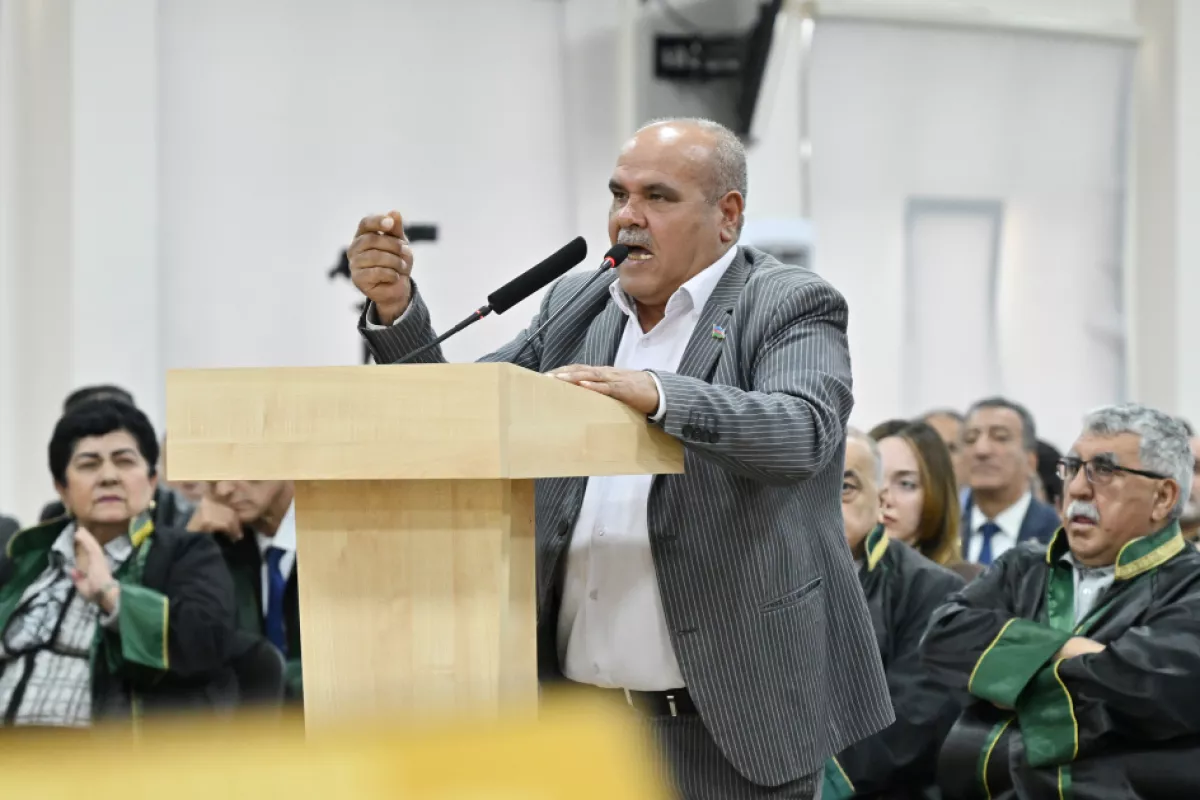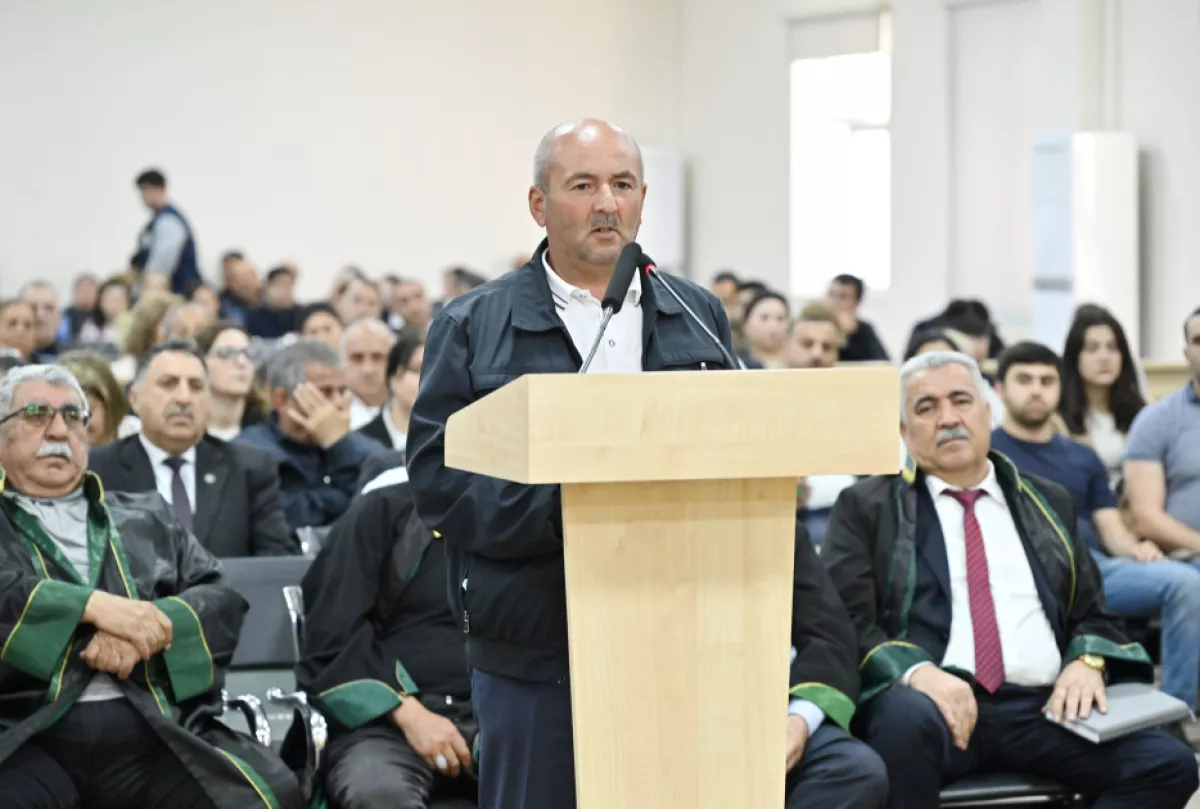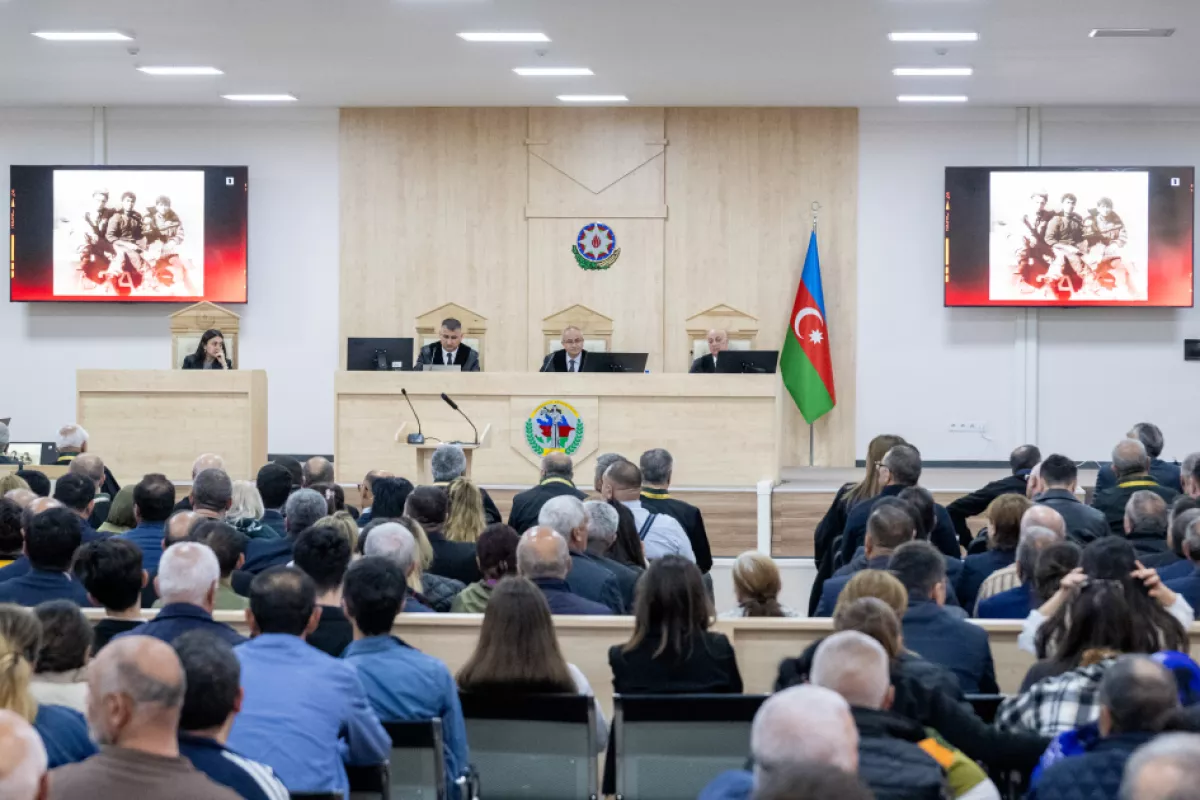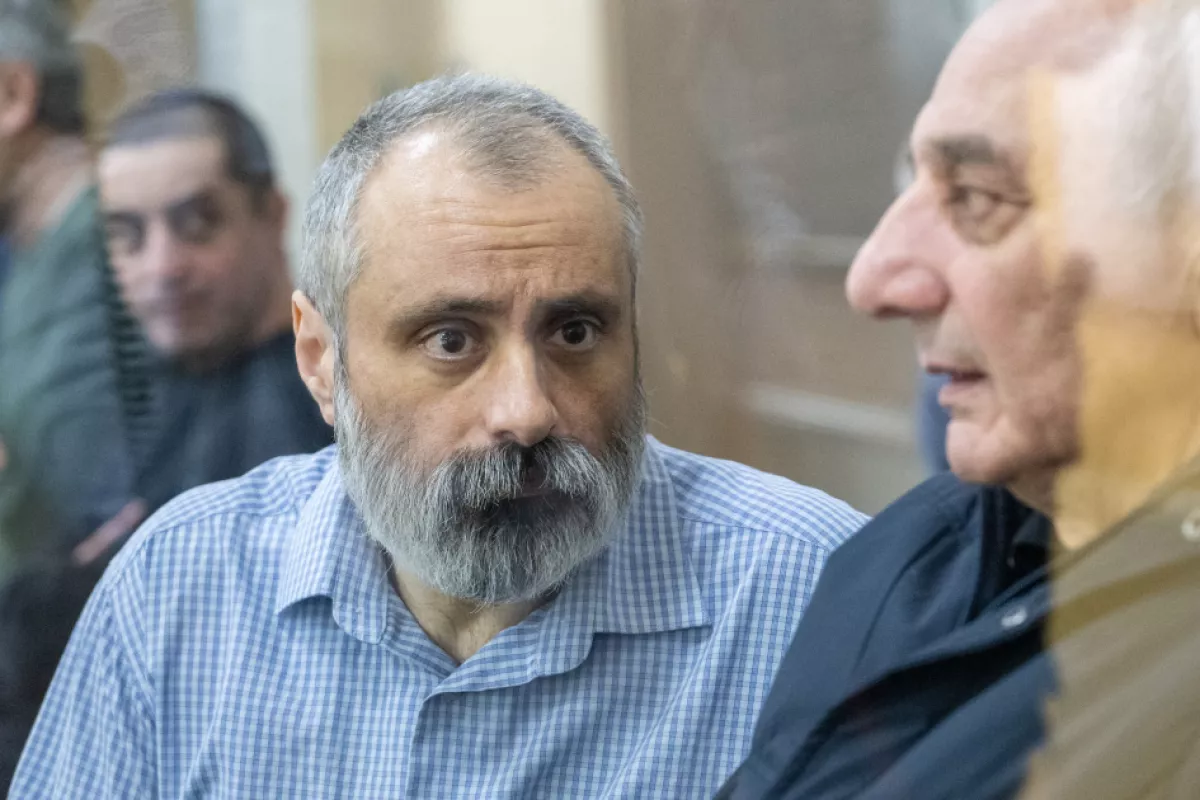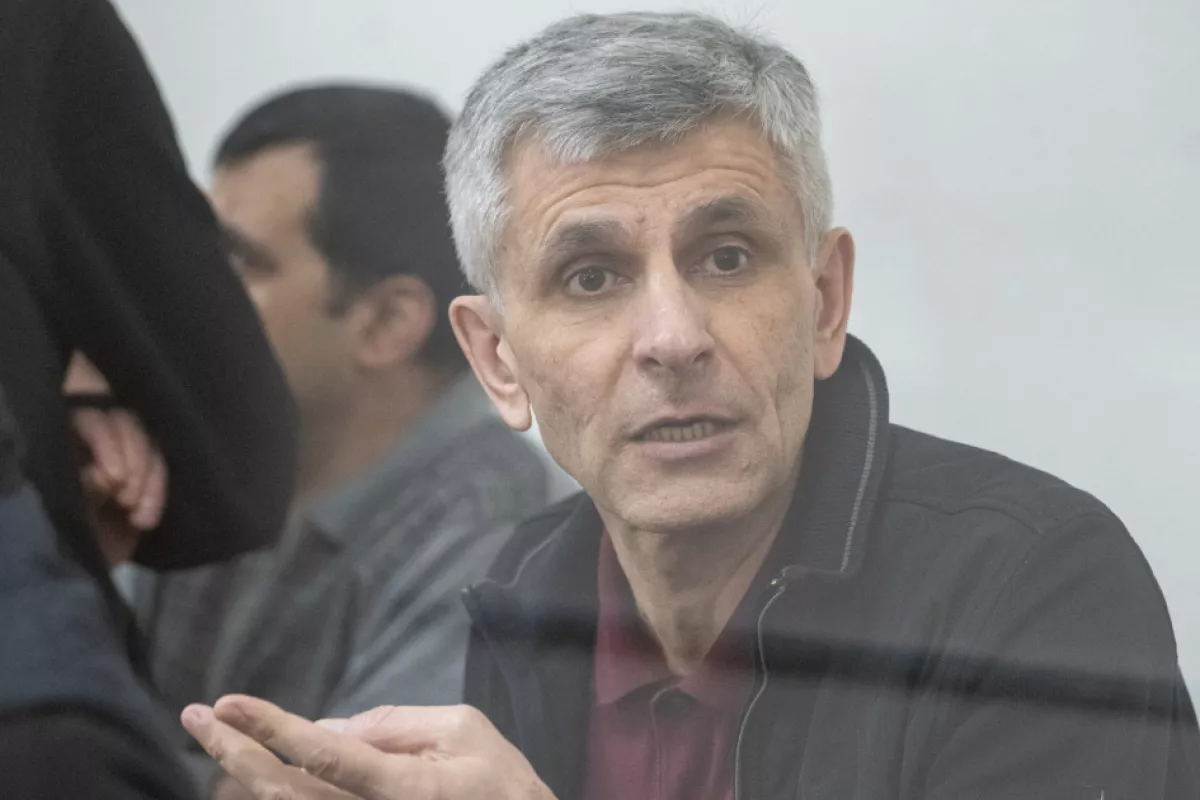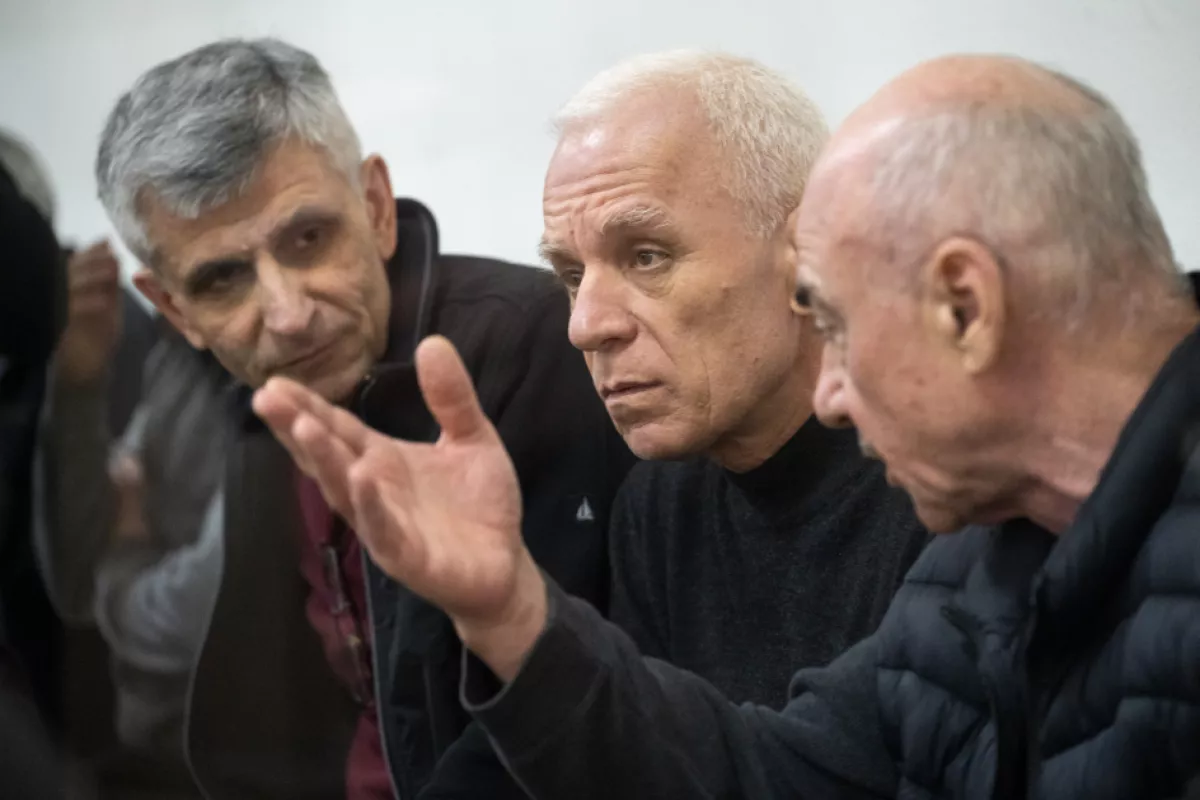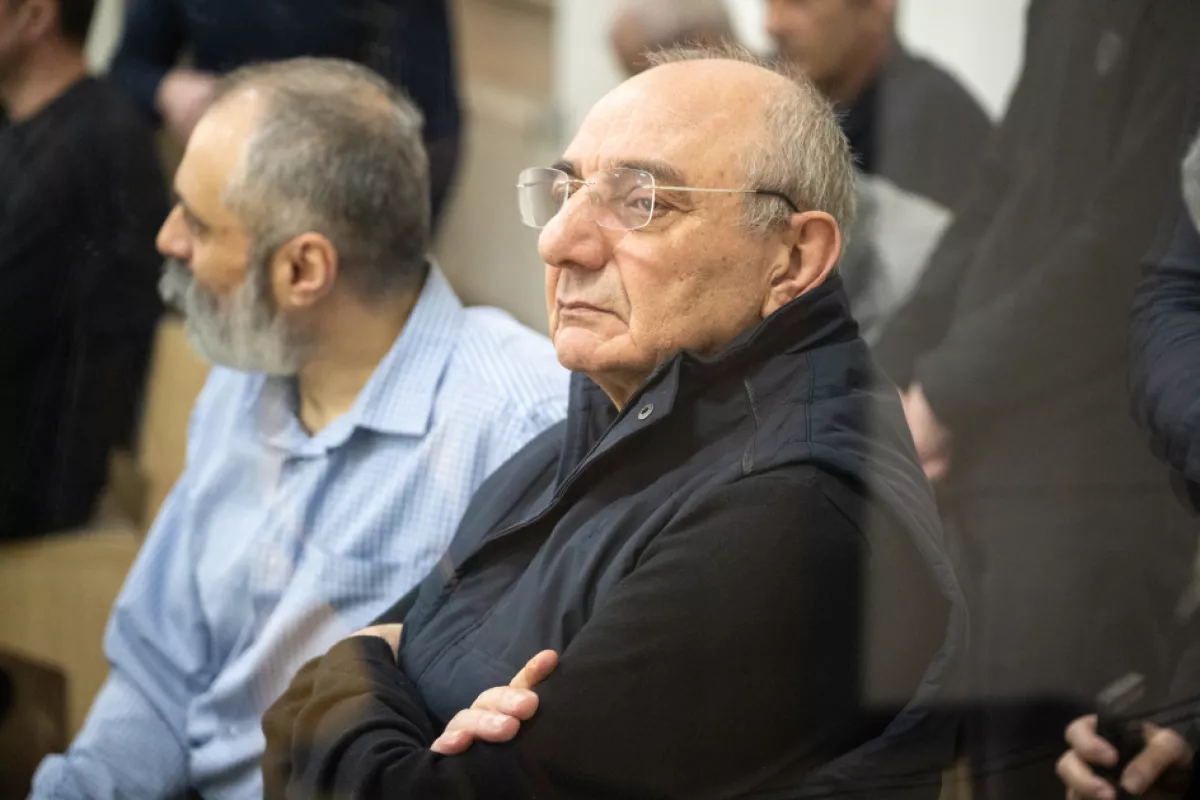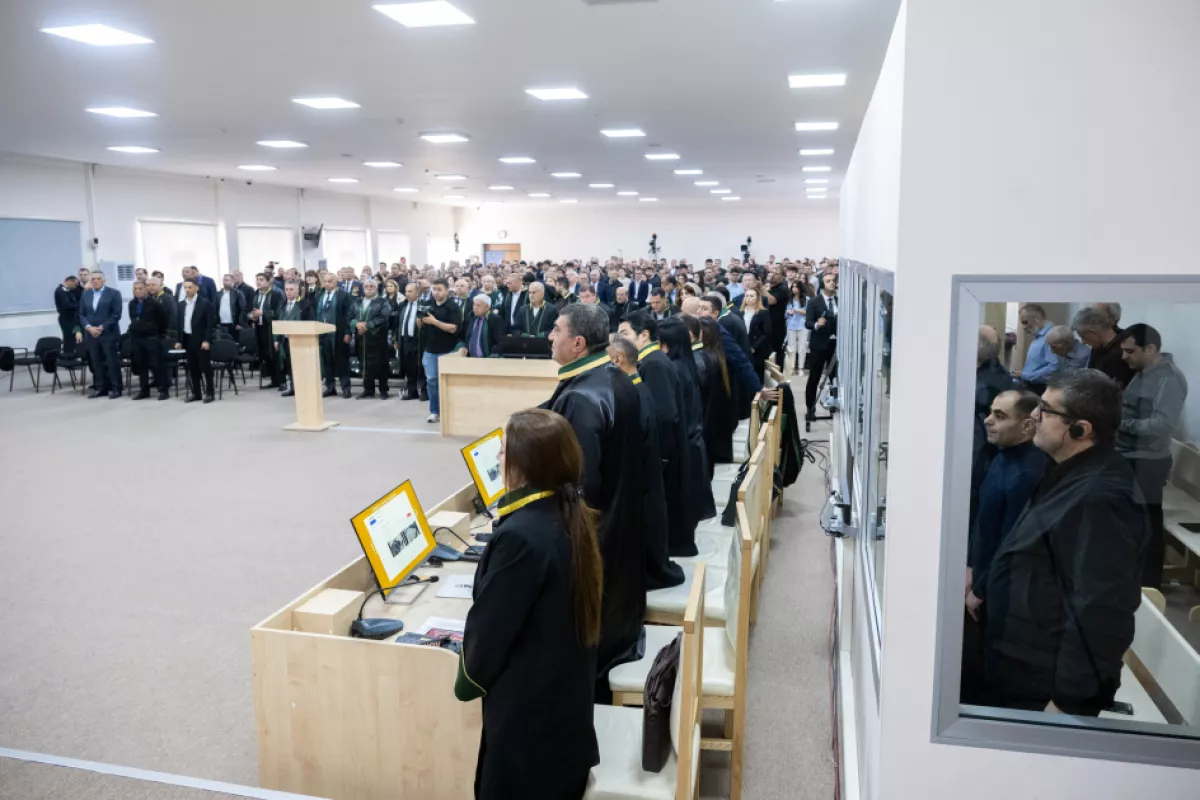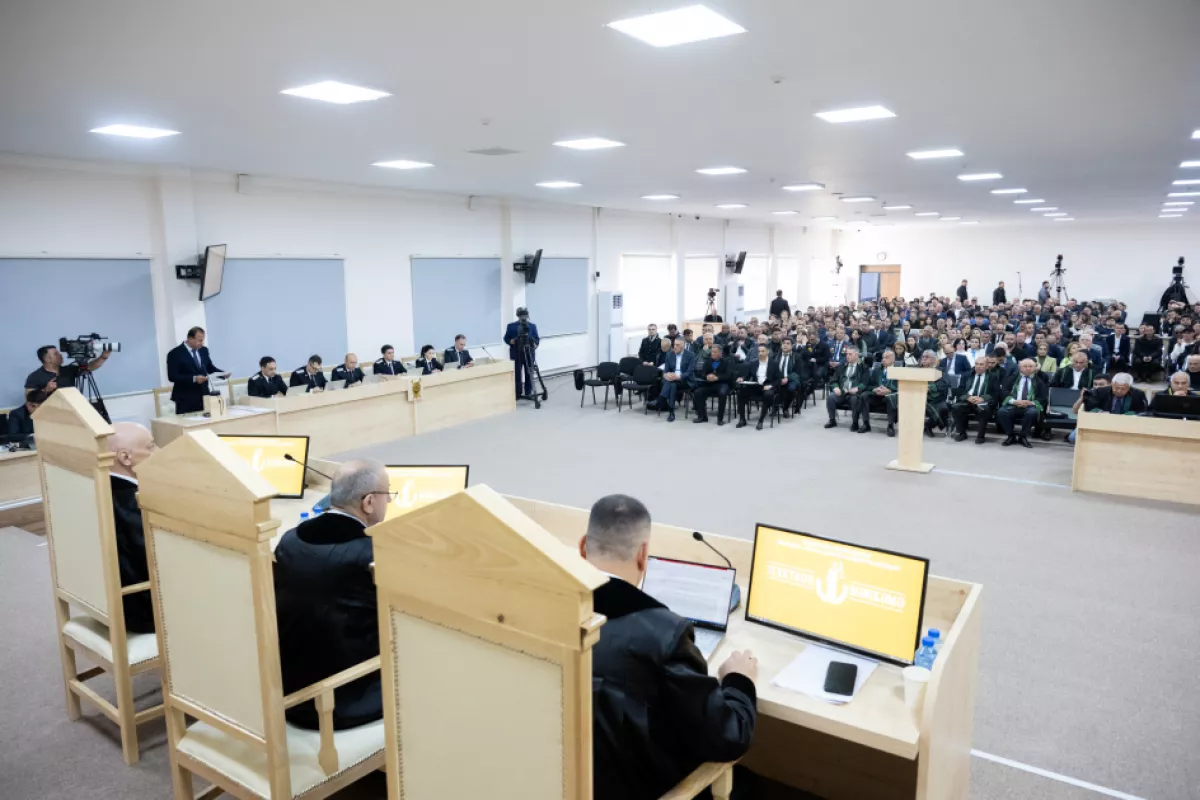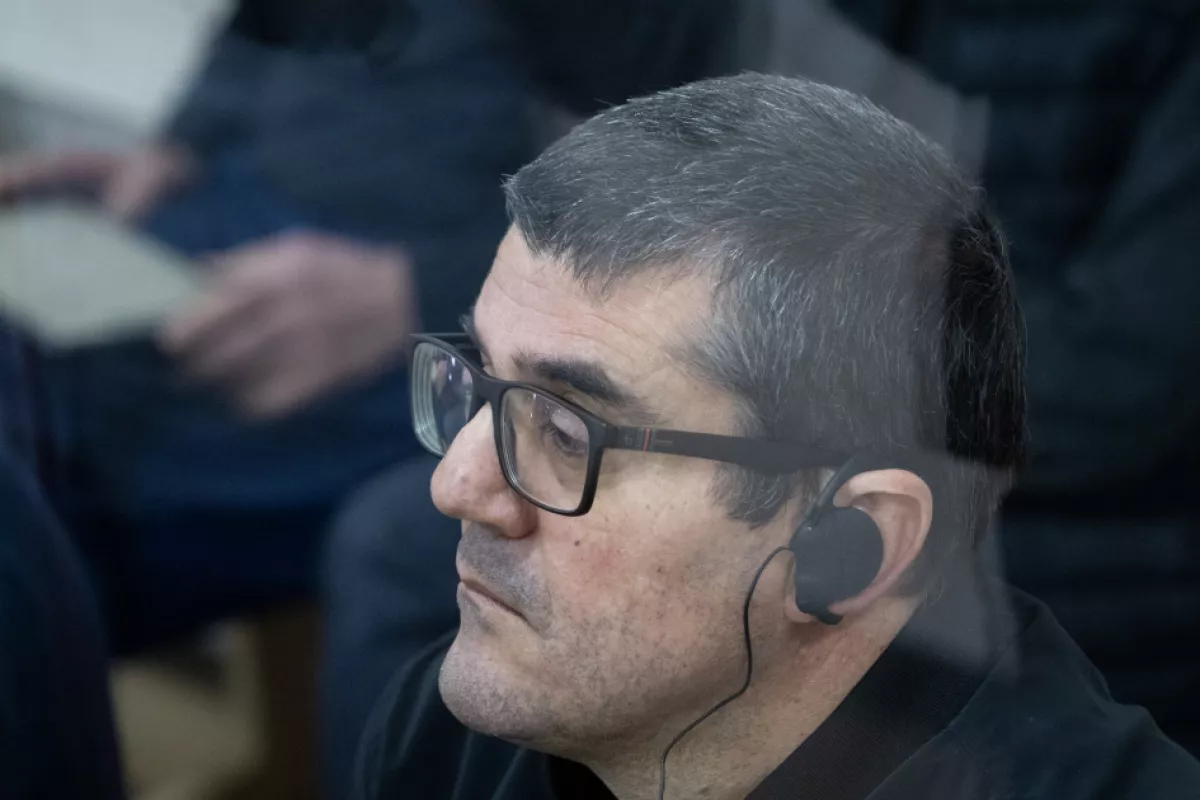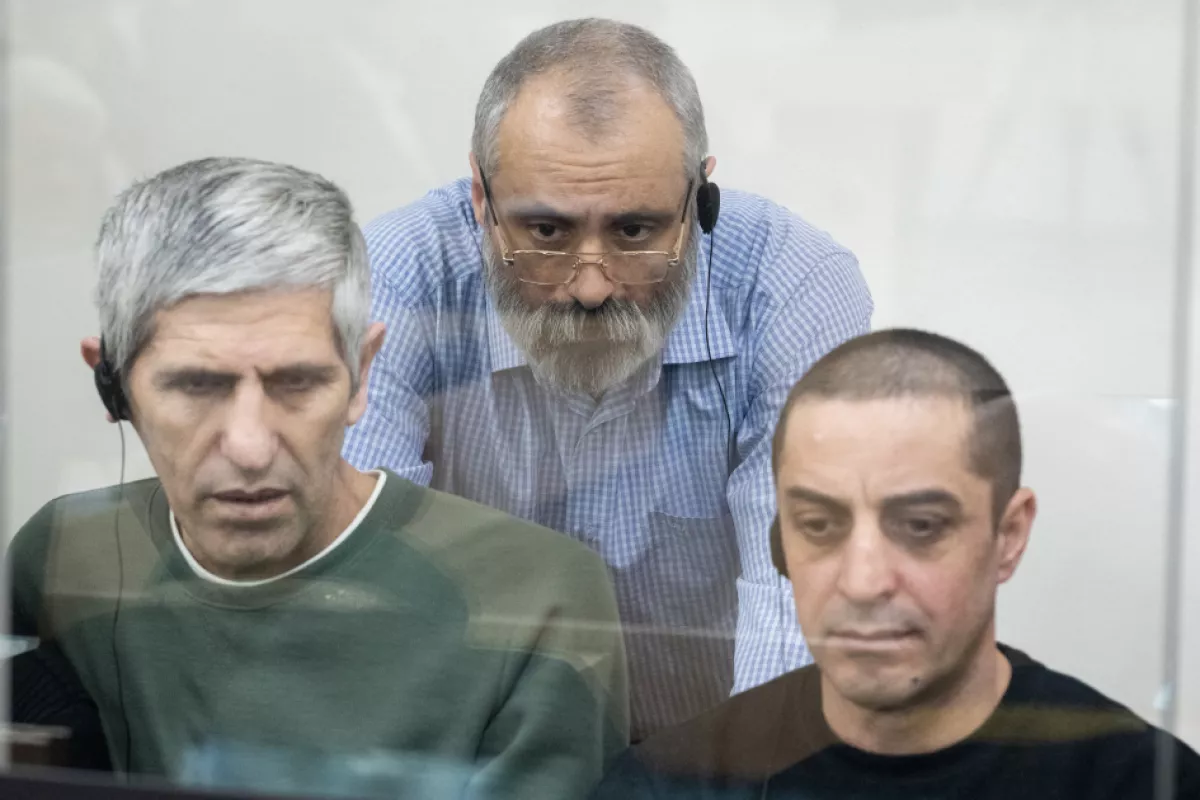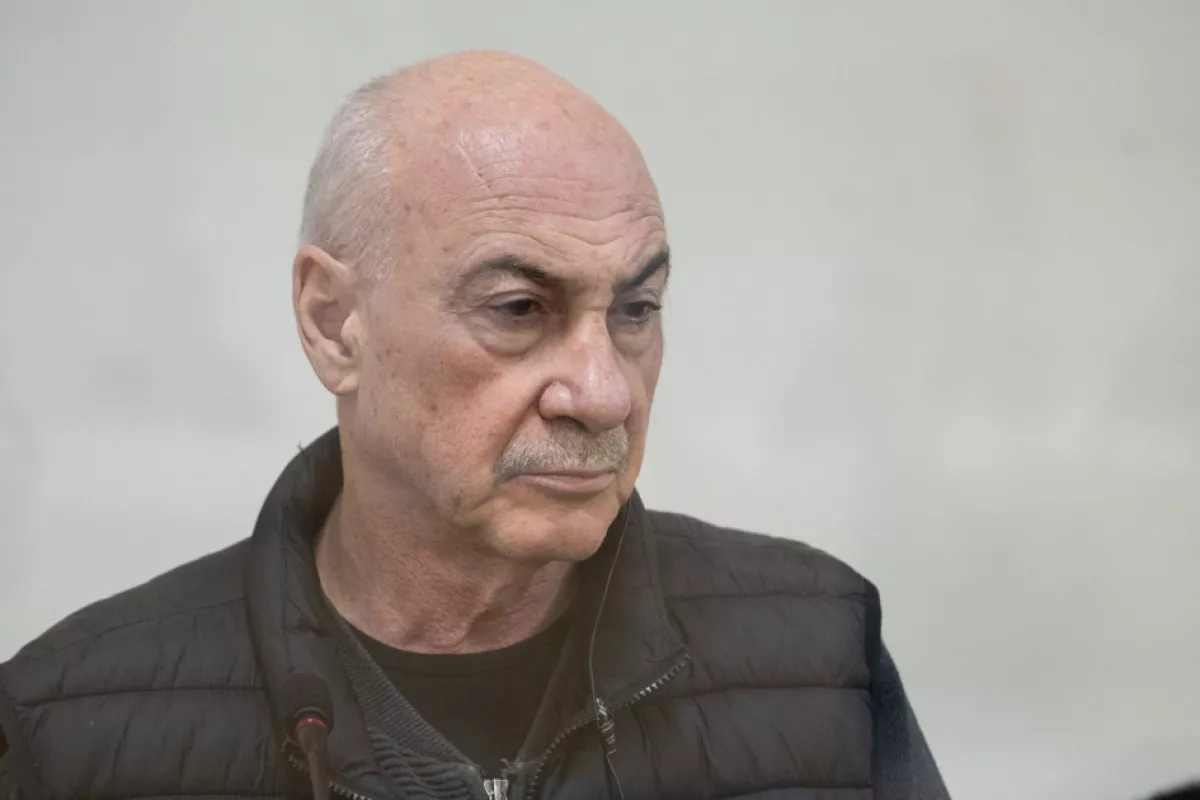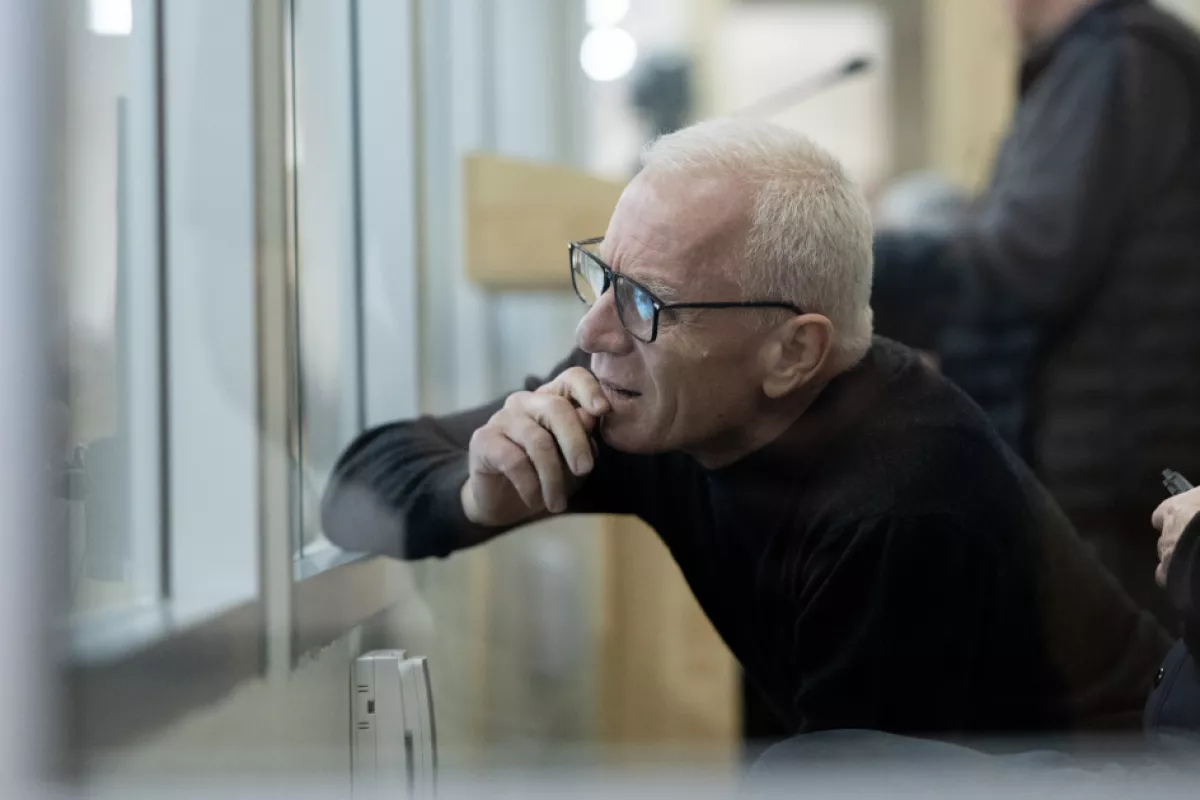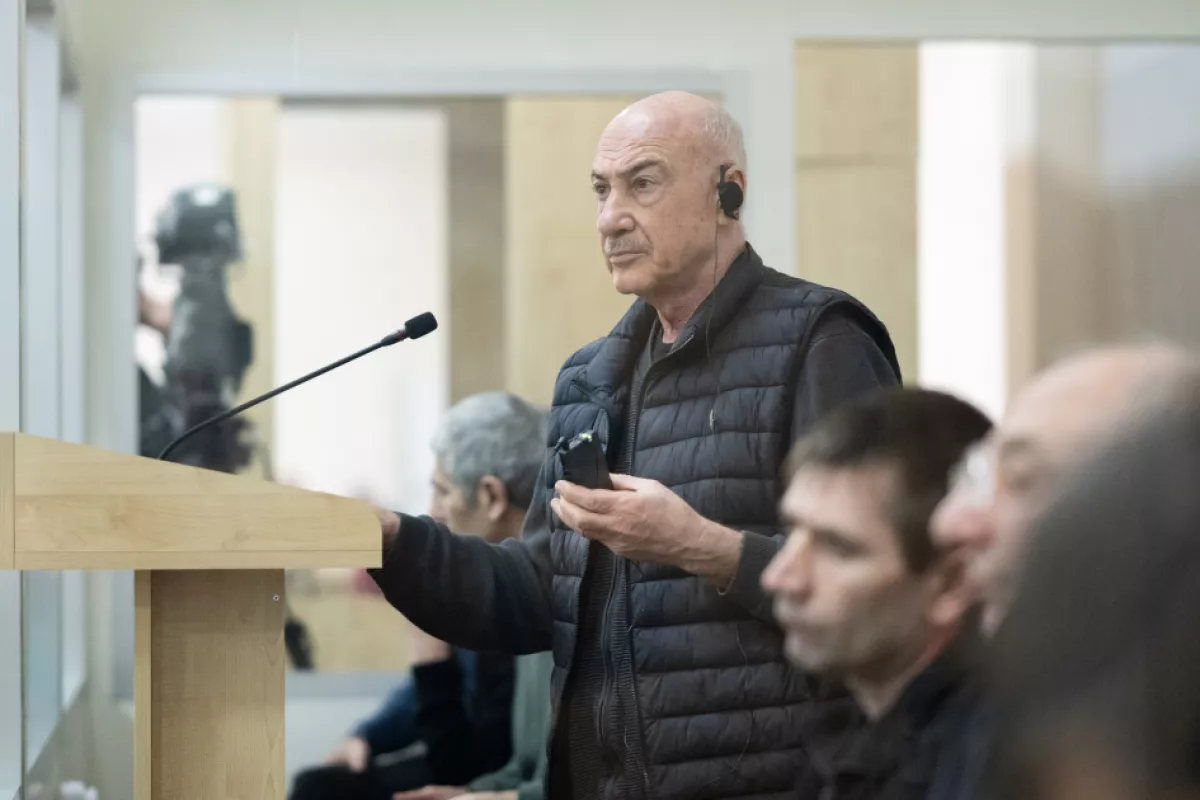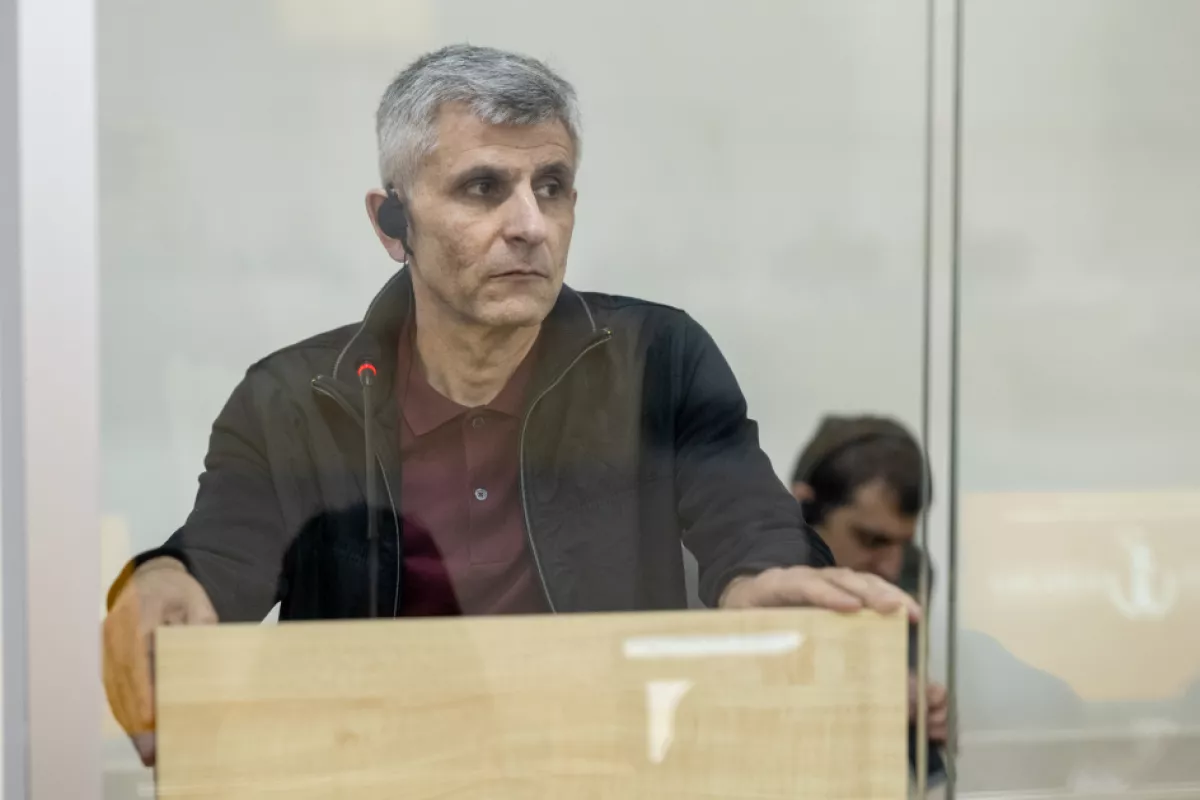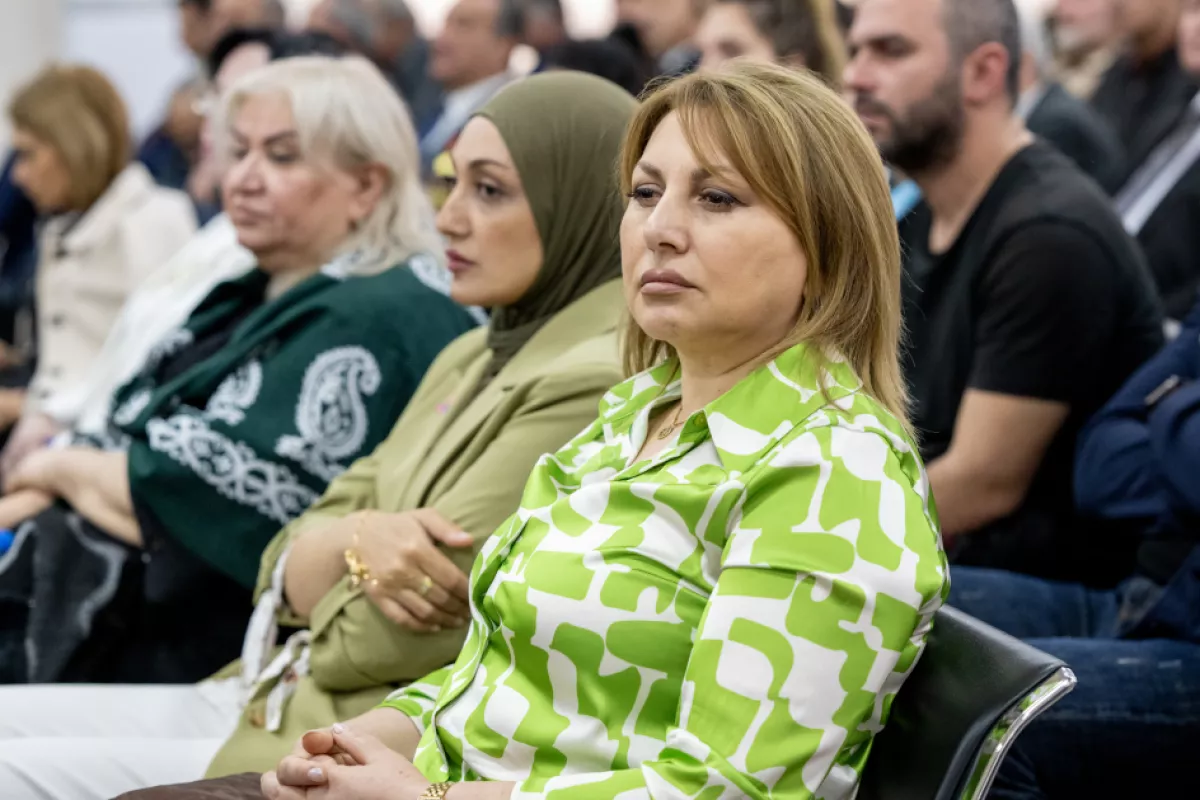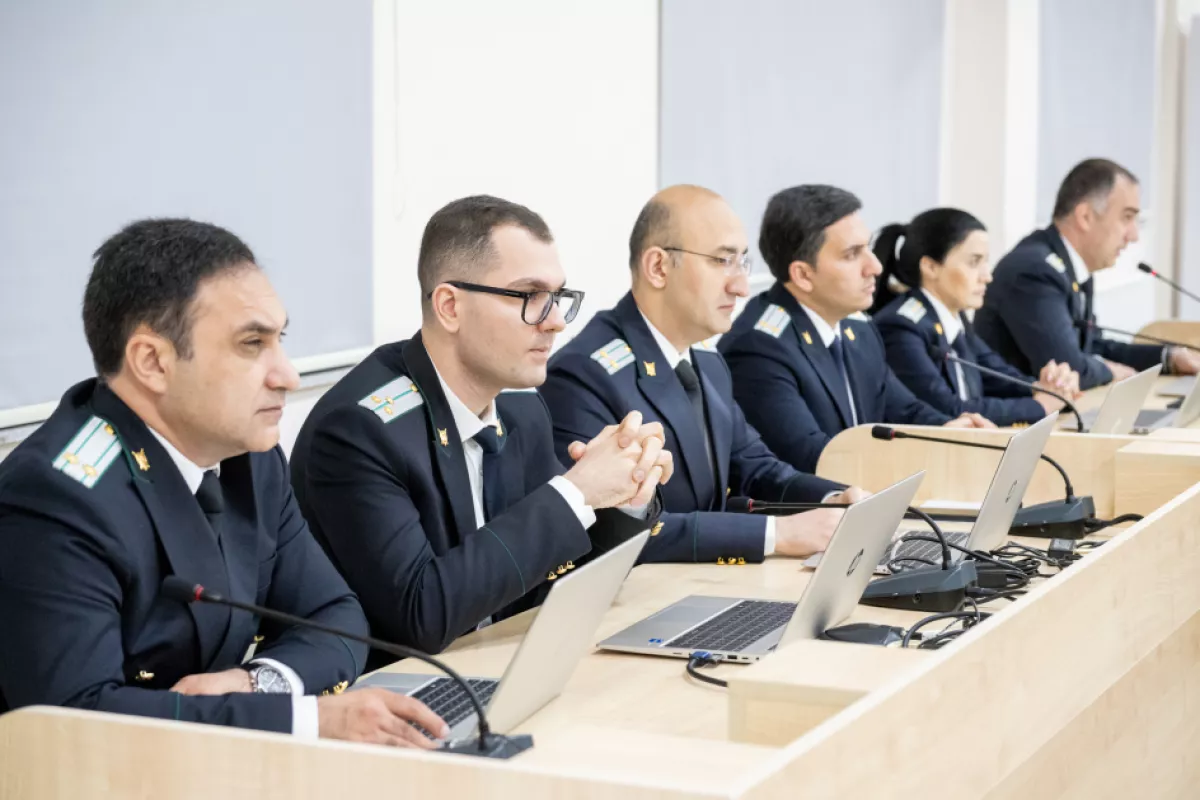Arayik Harutyunyan admits fabricating military record to boost "political credibility" Baku trial / PHOTO
The ongoing open court session in the criminal case against Armenian citizens Arayik Harutyunyan, Arkadi Ghukasyan, Bako Sahakyan, Davit Ishkhanyan, David Babayan, Levon Mnatsakanyan, and others, continued on May 1. The defendants are accused of grave crimes stemming from Armenia's military aggression against Azerbaijan, including crimes against peace and humanity, war crimes (such as planning and waging aggressive war), genocide, violations of the laws and customs of war, terrorism, financing terrorism, and the violent seizure and retention of power.
The Baku Military Court, presided over by Judge Zeynal Aghayev and including Judges Jamal Ramazanov and Anar Rzayev (with reserve judge Gunel Samadova), ensured that each defendant was provided with a translator in their native language and legal counsel for their defense, Caliber.Az reports via Azertag.
The session was attended by the defendants, their lawyers, some victims, their legal representatives, and state prosecutors.
At the outset, Judge Aghayev introduced Zeynab Salamova, who would serve as an English interpreter for the examination of materials presented in English. He also introduced the court personnel and explained the legal rights and responsibilities of the new victims attending the proceedings.
The court then viewed a video showing Arkadi Ghukasyan in Shusha shortly after its occupation. Tugay Rahimli, Assistant to the Prosecutor General for Special Assignments, confirmed the timing of the footage and questioned Ghukasyan. The defendant identified individuals in the video, including Oleg Isayan, Armen Isagulov, Zori Balayan, Vasili Atajanyan, and Bishop Pargev, along with other military personnel.
Following this, a video was shown depicting Davit Ishkhanyan and his group obstructing the path of Azerbaijani soldiers attempting to prevent the occupation of Shusha. The video claimed that Ishkhanyan acted under the orders of Monte Melkonian to halt the advance of Azerbaijani forces from Khojavend. It further stated that Armen Avokyan, the original commander, was killed on May 15, 1992, and Ishkhanyan assumed command.
Defendant Ishkhanyan disputed the video's accuracy, claiming it was propaganda filmed in early 2020, ahead of elections in the self-proclaimed regime. He stated that his physical condition at the time would have prevented his participation, as he was using a cane.
The court then examined footage from an interview with Arayik Harutyunyan, where he discussed the involvement of an Armenian platoon commander in the battles of Kerkijahan, Malybeyli, and other locations.
Under questioning, Harutyunyan claimed he had not participated in those battles and was a student at the Agricultural Institute in Yerevan at the time. He asserted that he made these statements in 2020 to bolster his credibility as a candidate during the elections, claiming to have fabricated his wartime service with the help of witnesses and information from his brother's diary. He admitted that without such claims, his past service would have been questioned during the 2020 elections.
However, when questioned by his own lawyer, Harutyunyan stated that he permanently moved to Karabakh in late August or early September 1993.
Responding to further questions from state prosecutors, Arayik Harutyunyan confirmed that those who led the Shusha operation also participated in the occupation of the Lachin region. He also acknowledged knowing most of the Shusha operation's leaders (Samvel Babayan, Seyran Ohanyan, Valeri Chitchyan, Arkadi Karapetyan, etc.), with the exception of Valeri Chitchyan. He agreed that the Shusha operation was a unified operation, extending from May 17 to 19, and that Zori Balayan frequently visited Karabakh and met with its leaders.
The court then presented and examined documents pertaining to criminal acts preceding the occupation of Garadaghli village, including the downing of an Azerbaijani helicopter.
These documents detailed Armenian attacks on Garadaghli in 1989, 1990, and 1991, involving the killing of Azerbaijani residents, burning of bodies, infliction of injuries, looting, and theft of livestock. They also covered incidents of passenger buses carrying Azerbaijanis being repeatedly fired upon, resulting in deaths and injuries.
Protocols related to the November 20, 1991, helicopter crash in Garakend were also examined. It was noted that all 22 people on board perished. A criminal investigation was initiated by the Khankendi Military Prosecutor's Office, but the weapons of Mohammed Asadov, Ismat Gaibov, Igor Plavsky, and Nikolai Zinkin, as well as the video camera belonging to operator Fakhreddin Shahbazov, were never recovered from the crash site.
A passage from Markar Melkonyan's book, "My Brother's Road," was read aloud. The excerpt stated that by 5 PM, Armenian forces had achieved their military objectives, resulting in one Armenian fighter killed, two Azerbaijanis killed, and 48 captured and loaded onto a truck.
The book also described an incident in which an Armenian soldier, identified as "Shram Edo," poured gasoline on several wounded Azerbaijani soldiers and burned them alive, turning the area into "a butcher shop with pieces of meat."
Eyewitnesses and victims then testified, answering questions about the events.
Seyyur Naghiyev, a resident of Garadaghli, testified that he knew defendant Davit Ishkhanyan. He stated that Armenian forces regularly attacked Garadaghli prior to its occupation in 1992, killing civilians, burning homes, and stealing livestock. He recounted that the village was surrounded and attacked from all directions between February 15 and 17, 1992, with the involvement of mercenaries. Naghiyev stated that the attacks had begun in 1989. He confirmed the murder of his brother, uncle, and three cousins during the occupation, naming them and noting that the fate of others remains unknown. He testified that he was taken hostage to Khankendi, where he and other hostages were subjected to terrible torture. He was eventually released through the mediation of Allahverdi Bagirov. Naghiyev identified Manvel Yeghiazaryan, commander of the "Arabo" battalion, as directing the attacks on the village, confirming a photograph of Yeghiazaryan shown in court.
Vidadi Huseynov, another resident of Garadaghli, testified that attacks on Azerbaijanis began in 1988, including assaults on buses and the burning of civilians alive, and looting of livestock. He stated that during the February 1992 attack, 400-500 armed Armenians attacked 118 Azerbaijani civilians, including women, children, and the elderly, occupying the village on February 17.
Ilgar Huseynov testified about being taken hostage and transported in trucks, with 33 individuals being shot at a location called "Beylik garden." He stated that he was tortured in Khankendi before being exchanged for Armenian prisoners after 45 days.
Amiraslan Guliyev testified that more than 30 Azerbaijani hostages were shot after being removed from trucks on February 17, 1992, their bodies thrown into a nearby well. He further testified that the cars were stopped several times and some of the prisoners were shot. Others were taken to Khankendi and tortured.
Baxsheysh Huseynov stated that he was taken hostage during the occupation in February 1992 and transported to Khankendi with other prisoners, where they were tortured daily, their bodies pierced with objects. He remained a hostage for 56 days.
Shamkhal Shirinov also testified about the regular shelling and attacks on Garadaghli between 1991 and 1992, resulting in killings and looting. He said the village was effectively besieged, with all connections to other areas cut off, leading to severe food shortages. He was also taken hostage and witnessed the shooting of some fellow captives. Shirinov described being subjected to horrific torture, including having his teeth pulled out and suffering numerous injuries.
The next court session is scheduled for May 2.
The said persons, i.e. Arayik Vladimiri Harutyunyan, Arkadi Arshaviri Ghukasyan, Bako Sahaki Sahakyan, Davit Rubeni Ishkhanyan, David Azatini Manukyan, Davit Klimi Babayan, Levon Henrikovich Mnatsakanyan, Vasili Ivani Beglaryan, Erik Roberti Ghazaryan, Davit Nelsoni Allahverdiyan, Gurgen Homeri Stepanyan, Levon Romiki Balayan, Madat Arakelovich Babayan, Garik Grigori Martirosyan, Melikset Vladimiri Pashayan, are being charged under Articles 100 (planning, preparing, initiating and waging a war of aggression), 102 (attacking persons or organizations enjoying international protection), 103 (genocide), 105 (extermination of the population), 106 (enslaving), 107 (deportation or forced displacement of the population), 109 (persecution), 110 (enforced disappearance of people), 112 (deprivation of liberty contrary to international law), 113 (torture), 114 (mercenary service), 115 (violation of the laws and customs of warfare), 116 (violation of international humanitarian law during armed conflict), 118 (military robbery), 120 (intentional murder), 192 (illegal entrepreneurship), 214 (terrorism), 214-1 (financing terrorism), 218 (creation of a criminal association (organization)), 228 (illegal acquisition, transfer, sale, storage, transportation and possession of weapons, their components, ammunition, explosives and devices), 270-1 (acts threatening aviation security), 277 (assassination of a state official or public figure), 278 (forcible seizure and retention of power, forcible change of the constitutional structure of the state), 279 (creation of armed formations and groups not provided for by law) and other articles of the Criminal Code of the Republic of Azerbaijan.




